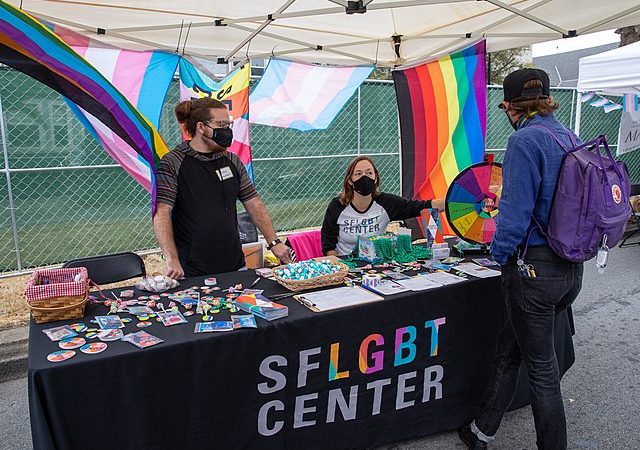Judges who handle child abuse and neglect cases in California are required to take a training on LGBT issues that pushes them to consider whether parents who object to their child’s preferred pronouns should have custody.
The Judicial Council of California’s “LGBTQ+ Considerations” training, offered twice annually for judges working on juvenile dependency cases, instructs judges on how to handle youth gender identities, advising them to “be aware that LGBTQ youth may be at risk of harm at home, school and in other settings due to biased or uninformed attitudes or conduct by peers/adults,” according to a presentation from June 2023 obtained by the Daily Caller News Foundation via a public records request. After citing statistics on mental health problems among LGBT youth and warning judges to stay alert about “physical or emotional abuse” by parents that does not have a “clear reason,” the presentation puts forward three hypothetical scenarios for the judges to sort through.
One hypothetical asks judges to consider how they would handle a request to return a 13-year-old foster child home to a mother who voiced religious objections to using male pronouns for her daughter, who wants to be called Marco and “consult a doctor about hormone treatment.” It notes the mother has otherwise been cleared of alcohol abuse, maintains a job and acquired stable housing.
“Mother says that according to her religion and culture she cannot call her child ‘Marco’ or use male pronouns, and believes the child has been negatively influenced by other youth in the foster home,” the slide says. “Mother’s attorney indicates she will argue for return of the child to the mother, and object to the use of child’s pronoun and name of choice. The child is present at the hearing. How do you conduct the hearing? What orders do you make?”
The presentation is “a segment of a larger program offered 2 times per year” for judicial officers that are “new or returning to a juvenile dependency assignment,” a spokesperson for the Judicial Council told the DCNF.
Judges handling juvenile dependency cases are required under state law to take the training, the spokesperson confirmed.
The state legislature amended the law to require dependency judges to take “cultural competency and sensitivity relating to, and best practices for, providing adequate care to lesbian, gay, bisexual, and transgender youth” in 2013.
“Sexual health for all youth includes developing awareness of sexual orientation and gender identity,” one slide asserts. Another notes that LGBTQ+ youth “are 4x more likely to attempt suicide.”
Studies have cast doubt on the idea that affirming a child’s gender identity leads to better mental health outcomes.
The training lists five concrete actions judges can take: “conduct hearings in a trauma-informed manner,” “consider visible indicators that are in the courtroom,” “use the name and gender of the youth they request,” “insist the Department use their requested name and gender” and “be kind.”
Another scenario in the training describes a 16-year old boy who identifies as female and uses the name “Jasmine” that “ran away from her placement with an aunt and was placed in an STRTP due to refusing to attend school or comply with her aunt’s rules, drug use, and self-harm (cutting).”
“The STRTP initially placed Jasmine in a girls’ cottage but re-placed her in a boys’ cottage because the other girls were uncomfortable,” it continues. “Minor’s counsel says Jasmine is depressed and afraid in the boys’ dorm and has been bullied. She asks that you order the STRTP to allow Jasmine to move back to the girls’ dorm. What orders do you make?”
Kate Anderson, senior counsel and director of the Center for Parental Rights at the Alliance Defending Freedom, told the Daily Caller News Foundation the public “must be assured that judges are receiving accurate information about the law.”
“Parental rights, free speech, and religious freedom are bedrock constitutional rights that every judge should protect when considering the specific facts of a sensitive dependency case or any other case that comes before them,” Anderson said. “It is deeply concerning that groups that actively advocate against these important rights elsewhere are providing training to judges behind closed doors.”
The DCNF previously reported that the Superior Court of Santa Cruz County hosted an activist in May 2023 to train judges on effectively using pronouns and addressing “gender identity” in the courtroom. Similarly, the Ohio Supreme Court coordinated a conference where an activist group held a training for judges that encouraged affirming youth transgender identities and suggested children have a “stable sense” of their gender identity by four years old.
In September 2023, Democratic California Gov. Gavin Newsom vetoed a bill passed by the state legislature that would have required courts to account for whether a parent affirms their child’s gender identity in custody disputes. Newsom noted that courts are already required “to consider a child’s health, safety, and welfare” under existing law, which he said includes “the parent’s affirmation.”

